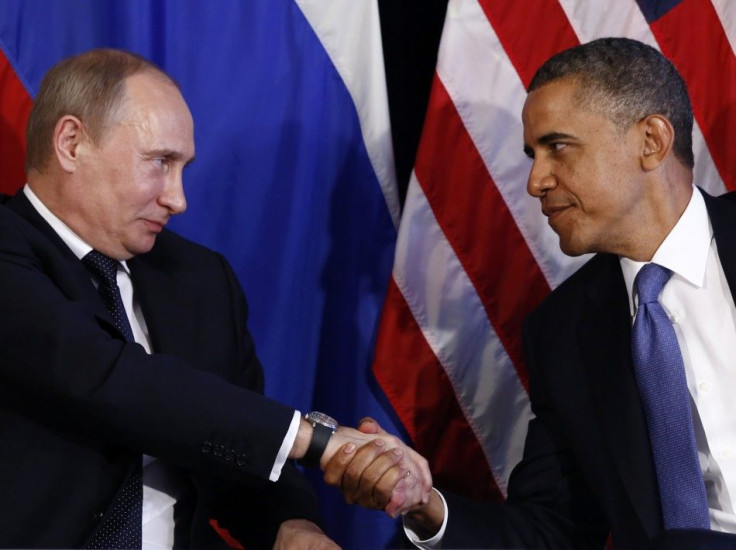Russia Shuts Down Its US Aid Mission

Russia has ordered the U.S. to shut down its aid mission in Moscow, the U.S. government said Tuesday, dealing a blow to Washington’s efforts to reset ties with Moscow and sparking fear among many aid recipients that their survival would be in danger.
State Department spokeswoman Victoria Nuland told reporters that Russia sent a letter Sept. 12 informing Washington of the Russian government’s decision to end USAID (United States Agency for International Development) activities in the nation. She didn't cite any reason for the closure but said that U.S. would remain committed to supporting democracy and human rights in the region.
The USAID has spent about $2.7 billion in Russia since its inception 20 years ago, with a third of the funding going to democracy promotion and the rest to health and environment programs and to combat trafficking. The agency had a budget of $50 million for the fiscal year 2012.
Nuland said the U.S. “look for ways to continue with those members of Russian civil society who want to continue to work with us,” adding that Moscow’s was a “sovereign decision that any country makes, whether they want to have U.S. assistance through AID.”
“We also work or have worked over the years with the Russian Government on programs that fight AIDS there, fight tuberculosis, help orphans, help the disabled, combat trafficking, support Russian programs in the environmental area, wildlife protection. So it is our hope that Russia will now, itself, assume full responsibility and take forward all of this work that we were proud to do together so that the Russian people continue to have the benefit,” Nuland said.
She said there were more than 20 countries around the world where the U.S. worked with civil society on democracy and human rights without a formal AID mission.
Nuland said resetting ties between Washington and Moscow was primarily about global and regional foreign policy issues and both nations had been “very clear about what we see as the benefits of the reset.”
She said both the nations would continue to work together on “the New START (Strategic Arms Reduction) Treaty, the work we’re doing together in the P-5+1 on Iran; the work we’ve done on the DPRK; the work we’ve done to be able to support Afghan security forces; peace and stability in Afghanistan.”
“But we’ve also always said that the reset would give us an opportunity not only to cooperate wherever we could but also to be clear when we have concerns and when we disagree. We’ve been very upfront about our concerns about the human rights situation and some of these new legal moves in Russia, and we will continue to do so,” Nuland said.
She said there were preliminary indications of Russia’s decision to end the U.S. aid mission that were conveyed to U.S. Secretary of State Hillary Clinton during her visit to Vladivostok for the APEC summit at the beginning of this month.
Reuters cited analysts who suggested that in the wake of Kremlin’s crackdown on pro-democracy groups, the move to cut foreign support for Russian groups that promote democracy and civil society was politically motivated.
USAID has been given a deadline of Oct. 1.
Senator John McCain (R-AZ) said the “Russian government’s decision to end all USAID activities in the country is an insult to the United States and a finger in the eye of the Obama Administration,” Reuters reported.
The Moscow Times reported that Kremlin, facing criticism for its crackdown on dissent, has accused the U.S. State Department of “fomenting the unrest and tightened the screws on nongovernmental organizations like Golos, the country's only independent elections watchdog, which exposed fraud during the Duma vote and subsequent March presidential election. A major portion of Golos' budget comes from USAID.”
Grigory A. Melkonyants, the deputy director of Golos, told the New York Times that it would take at least a year to find alternate financing to replace the American funding, if it was even possible.
“They see us as the source of criticism, and they are trying to halt that source,” Melkonyants was quoted as saying.
Russian President Vladimir Putin, who completed two successful presidential terms prior to becoming the prime minister during the presidential term of Dmitry Medvedev, took office in May after a controversial election victory and was sworn in while riot police in Moscow were suppressing protests against his third term.
© Copyright IBTimes 2024. All rights reserved.












